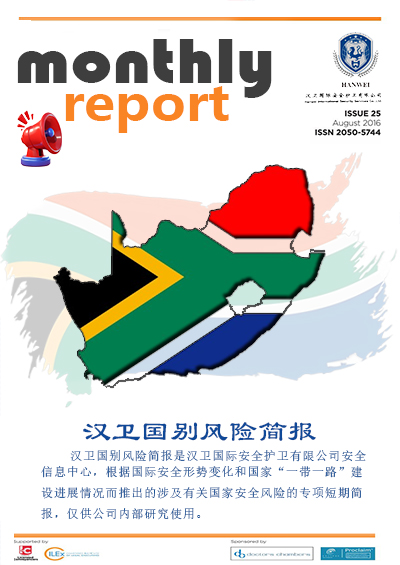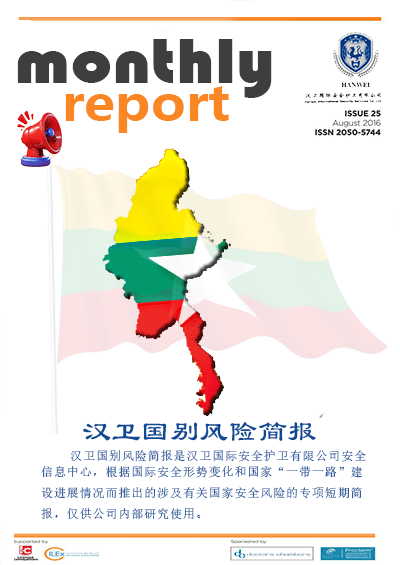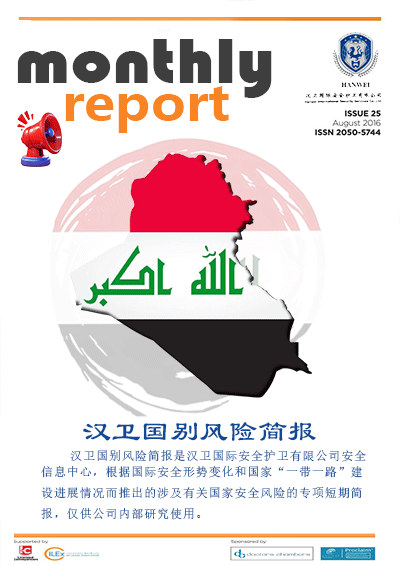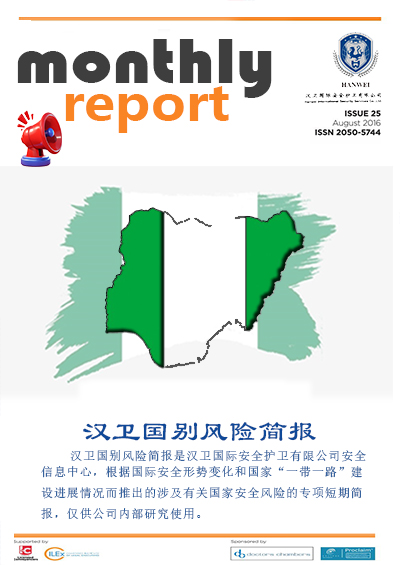Country Risk Security Briefing:
South Africa03Monthly Security Situation Overview
006Researcher
According to the monitoring report of Hanwei International's security officers in South Africa and related media reports, Hanwei International's analysis suggests that South Africa faces issues such as tense diplomatic relations and ongoing divisions among internal political parties in terms of politics this month; economic growth is sluggish, with continuous protests and demonstrations, and rising living costs such as electricity prices and emergency services; social security risks such as kidnapping, shootings, robberies/thefts are prominent, the security situation remains extremely severe, and natural disasters have further brought significant pressure on people's lives and national development.
I.Politics
(I) Ongoing Divisions within South African Political Parties and Deepening Rifts in the Unity Government
Recently, South Africa's largest opposition party, the Democratic Alliance (DA), sent a delegation to the United States on its own to hold talks with officials of the Trump administration and members of Congress. This independent visit to the United States by the Democratic Alliance has caused a stir within South Africa's coalition government. The ruling party, the African National Congress (ANC), stated that the Democratic Alliance's visit to the United States is a normal diplomatic interaction in form, but questioned its underlying motives. Other parties such as the United Democratic Movement, the Pan Africanist Congress, and the GOOD Party sharply criticized the Democratic Alliance's actions, accusing it of "acting without authorization," "smearing South Africa" on the international stage, and showing a "serious lack of political judgment."
The Democratic Alliance and the ruling ANC have continuous policy conflicts, and are deadlocked over the issue of increasing value-added tax. The Democratic Alliance opposes the ANC's plan to raise value-added tax and has proposed abolishing the Expropriation Bill as a condition for supporting the tax increase. Due to the failure of the two sides to reach an agreement on the value-added tax increase, the submission of the budget has been delayed again, and the implementation of relevant government fiscal plans has stagnated. Most importantly, the uncertainty of the value-added tax increase has also had many negative impacts: first, the tax increase is directly related to people's living costs, especially increasing the burden on low-income groups; second, the increase will also push up the operating costs of enterprises, which may lead to reduced investment, layoffs, or price increases; finally, it is difficult to implement relevant government fiscal plans, and funds for medical care, education, and infrastructure construction are difficult to obtain, especially the delay in salary payments, which may trigger larger-scale employee strikes and demonstrations.
(II)Expulsion of South African Ambassador to the United States
On local time, March 14, 2025, U.S. Secretary of State Rubio posted on social media, describing South African Ambassador to the United States Rasool as" "inciting racial emotions" ", and also claimed that he" "hates the United States and the U.S. President" ", and accordingly declared Rasool as" "a persona non grata" ". For this decision, neither Rubio nor the U.S. State Department gave a clear reason, but the post attached a link to a report from the conservative news website" "Breitbart" ". The report pointed out that at a foreign policy seminar held by a South African think tank on the same day, Rasool stated that Trump's advocated" ""Make America Great Again"" "movement is essentially a reactionary response of white supremacists to the increasing diversity of the U.S. population.
The unusual diplomatic move of the United States to expel the South African ambassador to the United States has become another symbol of the escalating tensions between Washington and Pretoria, clearly indicating that bilateral relations are deteriorating. After the expulsion incident, the rand exchange rate suffered a heavy blow, plummeting 4.2% to its lowest level in nearly three years.
II.Economy
(I) Protests Focus on Livelihood Demands
Due to the recent service disruption in District D, the Johannesburg Municipal Government dispatched municipal police to strengthen security in Johannesburg and Soweto, aiming to restore public services. The service crisis stemmed from protests by a group of people calling themselves members of the "South African National Liberation Army (MKP)", who demanded direct employment as ordinary municipal workers. The three-week-long protests have paralyzed key public services such as clinics, schools, and drainage systems in Soweto, bringing great inconvenience to residents' daily lives. Kunene, the Mayoral Assistant for Transport Affairs in Johannesburg, issued a statement saying that the Johannesburg Municipal Government strictly follows legal procedures for recruitment, with all positions openly recruited and no privileged requirements. The municipal government will not tolerate acts that disrupt services and will make every effort to restore normal services.
This month, the Umkhonto we Sizwe (MK) Party launched protests, threatening to stage nationwide protests if the authorities' budget revision raises value-added tax.On March 10, supporters of the MK Party marched around the South African Reserve Bank in Pretoria to oppose the proposed value-added tax increase. The MK Party expressed its opposition because the measure would increase the living costs of people and the operating costs of enterprises, especially impacting low-income groups.
On March 19, police officers of the Ekurhuleni Metropolitan Police Department (EMPD) in Gauteng Province, South Africa, held a protest at the Germiston Municipal Center due to a significant reduction in overtime pay, demanding a 10% salary increase and the restoration of 80 hours of monthly overtime. They claimed that the sharp reduction of overtime hours to 16 hours has seriously affected their income, and high-risk law enforcement work requires additional allowance compensation. The protest caused disruptions to some urban services.
(II)Rising Living Costs such as Electricity Prices and Emergency Services
News on March 18, the National Energy Regulator of South Africa (Nersa) approved the electricity price increase plan for municipal power utilities. Starting from July 1, 2025, the wholesale electricity price for municipal power suppliers will increase by 11.32%. Previously, South Africa's state-owned power company Eskom applied for a significant 43.55% increase in municipal electricity prices.According to a Nersa announcement, Eskom's application for retail electricity price and structural adjustment has been approved, with a 12.74% increase in standard electricity prices for direct customers and 11.32% for municipal customers. It should be noted that the 11.32% approved by Nersa is not the final municipal electricity price, as municipal power companies still need to submit price adjustment applications based on their own power supply costs, and the final increase will be affected by this.
News on March 17, the Gauteng Provincial Health Department announced that patient fees in public hospitals and clinics will be adjusted from April 1 to cope with rising medical costs.After the adjustment, fees for all patients will generally increase by 4.4%, emergency service fees will rise by 30% in large-scale incidents requiring on-site emergency medical services, and the fee adjustment covers all patients including those with medical insurance. At the same time, patients are charged according to their income levels, with the lowest fees for individuals with an annual income below 70,000 rand or families with an annual income below 100,000 rand. For example, such groups will be charged 170 rand for ambulance services requiring advanced life support, an increase of 10 rand from before.
III. Social Security Risks
(I)Kidnapping Incidents
Kidnapping cases are frequent in various parts of South Africa, with diverse modus operandi including ransom extortion and violent hijacking, and victims include ordinary people and businessmen.
On February 28, 2025, Sarah Scott, a 44-year-old Tanzanian resident, survived a terrifying attempted kidnapping while on vacation in South Africa.At around 8 p.m., while visiting her friend Wallis and waiting for an Uber outside his house, a man disguised as an Uber driver suddenly approached and tried to drag her into a white Volkswagen Polo. Scott let out a "lion-like" scream to deter the kidnapper and struggled fiercely. After the incident, she received no follow-up from the police, but Jaggani, the head of Uber South Africa's public relations, said the company attached great importance to it and was working closely with the police to ensure passenger safety. Gauteng Police Spokesperson Masondo confirmed that a case has been registered for investigation, but no suspects have been arrested yet.
On March 9, a businessman was kidnapped outside a restaurant in Norwood, Johannesburg, and the police anti-kidnapping task force took swift action the next day to successfully solve the case and safely rescue the victim. South African Police Spokesperson Aslenda Mate said that after the incident, the police tracked down a property in Kensington, Johannesburg, and engaged in a fierce exchange of fire with the kidnappers, resulting in one suspect dead and five arrested. The police seized four illegal firearms at the scene, including an AK-47 assault rifle, impounded the involved vehicles, and confiscated some of the victim's luxury watches, jewelry, and other items.
News on March 26, a 45-year-old female teacher from Happydale Special School in Algoa Park, Gqeberha, Eastern Cape Province, South Africa, was kidnapped by three armed men when she arrived at the school to park her car at 8 a.m. on the 24th. The kidnappers approached in a white Toyota Corolla, fired warning shots to disperse onlookers, and then forcibly dragged the screaming teacher into the car, a process recorded in social media videos. Through the joint operation of the police and multiple departments, the victim teacher




